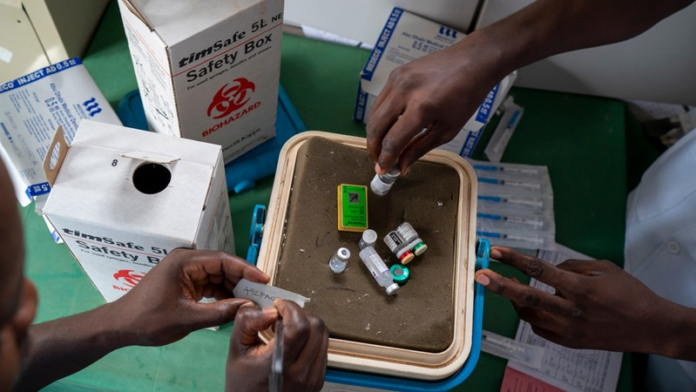The persistent burden of malaria disproportionately affects the most vulnerable populations, particularly children and pregnant women in Africa. To combat this deadly disease, chemoprevention campaigns serve as a critical strategy to protect these at-risk groups. Currently, the scope of malaria chemoprevention relies heavily on just two medicines: sulfadoxine-pyrimethamine (SP) and SP + amodiaquine (SPAQ). However, the emergence of drug resistance and the complexity of implementation necessitate urgent exploration of new options for chemoprevention.
Chemoprevention involves administering full antimalarial treatment courses to vulnerable populations in malaria-endemic areas, regardless of their malaria status. This includes seasonal malaria chemoprevention (SMC) for children, intermittent preventive treatment in pregnancy (IPTp), and post-discharge malaria chemoprevention (PDMC) for patients with severe anemia. SMC, which protects millions of children annually, involves monthly oral medication for up to five months during peak transmission seasons. SPAQ, an effective and cost-efficient option, does not require a temperature-controlled supply chain, making it suitable for rural areas. IPTp, aimed at pregnant women, involves administering SP at monthly intervals starting from the second trimester. Despite progress, IPTp coverage remains insufficient.
“
Innovative long-acting injectables, like monoclonal antibodies, show promise in malaria prevention, addressing convenience, efficacy, and cost-effectiveness challenges. -Gaudinski et al., 2021
To address the limitations of current chemopreventive measures, innovations are crucial. One promising avenue is the development of long-acting injectables (LAIs). These formulations, such as monoclonal antibody injections, offer the potential for once-per-season administration, improving convenience and effectiveness. Monoclonal antibodies represent a recent development in malaria prevention, offering a seasonal injection option. However, cost-effectiveness remains a challenge for widespread implementation. Additionally, MMV is actively researching LAI combinations in collaboration with various partners. LAIs offer high efficacy, simplicity, and low cost, with the potential to protect different populations for several months after a single injection. Their manufacturability and suitability for rural settings make them a promising addition to malaria prevention efforts. Exploration into long-acting oral formulations is also underway, aiming to match the duration of LAIs while ensuring safety and efficacy.
Op-ed: Monoclonal Antibodies: A New Approach to Malaria Prevention
The combination of pyronaridine and piperaquine presents a compelling avenue for malaria prevention. With rising drug resistance and limited options for pregnant women, this combination offers a viable solution. Leveraging longer-acting compounds already in use for malaria treatment, such as pyronaridine and piperaquine, shows promise for enhancing chemoprevention strategies. To promote malaria chemoprevention, WHO continuously reviews recommendations and collaborates with experts and manufacturers to develop preferred product characteristics. Operational initiatives, like the Tip Top Programme, aim to enhance the coverage of preventive chemotherapy, particularly for pregnant women, through community health worker involvement.
In conclusion, while the burden of malaria continues to disproportionately affect vulnerable populations, innovative approaches such as long acting injectables and monoclonal antibodies offer promising avenues for enhancing chemoprevention strategies. These advancements, coupled with ongoing research into new drug combinations and operational initiatives like the Tip Top Programme, signify a concerted effort to combat malaria effectively. By prioritizing the development and implementation of these interventions, we can strive towards a future where malaria prevention is more accessible, efficient, and ultimately saves countless lives in endemic regions worldwide.
















 The African Research (AR) Index is a comprehensive scholarly directory and database focused explicitly on journal publishers that publish and disseminate African research.
The African Research (AR) Index is a comprehensive scholarly directory and database focused explicitly on journal publishers that publish and disseminate African research.

